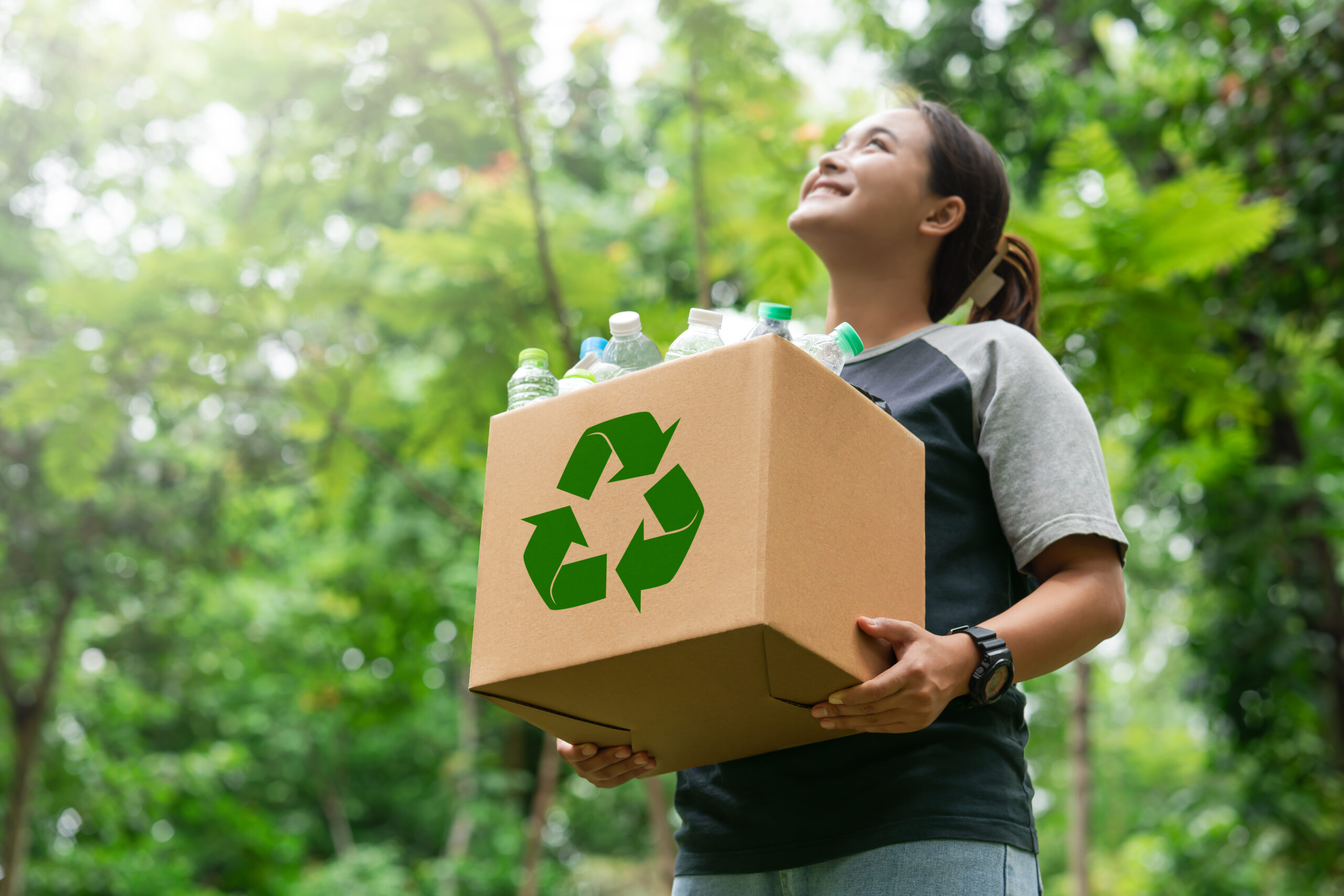
Bush School research finds that a Deposit Refund System would reduce trash imports while creating cleaner rivers and highways
Media outlets that would like more information about the DRS proposal should contact Marty Toohey with The Bush School of Government and Public Service at mtoohey@tamu.edu.
Believe it or not, American companies pay to import trash from China, Mexico and other parts of the world. Companies do this to gather enough bottles and cans to meet American demand for recycled bottles, cans and other content. Texas A&M University researchers are proposing a different approach, one that would reduce garbage in Texas: a “deposit refund system” (DRS) to spur recycling.
The DRS approach has reduced trash across northern Europe and is used in 10 states, including Iowa and Michigan. The concept is straightforward: charge a fee for a particular type of container, then, when someone brings in that container, give back the fee. Someone in Iowa, for example, pays an extra five cents when buying a bottled soft drink, then gets back that five cents at participating stores or redemption centers. The Texas Legislature is now considering such a proposal.

The overall idea is that Texas is one of the largest states and can thus be one of the most influential in reducing the nation’s reliance on imported garbage.
“We are importing trash that is completely unnecessary,” said Raymond Robertson, the director of the Bush School’s Mosbacher Institute for Trade, Economics, and Public Policy and a co-author of a DRS policy brief. He said that Texas could reduce litter, create jobs and even draw more foot traffic into stores by creating a system similar to Iowa’s. Texas could start modestly, perhaps with plastic soda/water bottles, then scale up as the public becomes accustomed to the new approach, according to the policy brief.
“A lot of the details would have to be worked out,” said Kaleb Abreha, an assistant research scientist at the Mosbacher Institute and a coauthor of the brief. “But there is an environmental rationale and an economic rationale.”
WHY TEXAS?
In 2021, 23.7 billion beverage containers were sold in the state, but only 5.2 billion were recycled, according to the Container Recycling Institute. That leaves 18.5 billion cans, bottles and other materials buried in landfills or strewn across the state’s landscapes. Fewer than one in five plastic water bottles are recycled.
Texas is well off the official state goal of a 75% recycling rate by 2035.
“Traditional (recycling) methods, particularly single-stream recycling, have proven inefficient due to contamination and quality issues,” according to the Mosbacher Institute brief. The issue – exacerbated by confusion over recycling practices – stretches beyond the beauty of the landscape. The state missed out on $372.6 million in scrap metal in 2021, according to the brief, which adds: “Organizations such as the Texas Farm Bureau and the U.S. Cotton Trust Protocol are working to enhance sustainability efforts, including expanding recycling programs.”
DRS programs, meanwhile, have proven effective. In deposit states, people recycle 46% of plastic water bottles, versus 10% in non-deposit states. The disparities are similar for glass containers and aluminum cans.
“DRS directly engages consumers in the recycling process” because they have one of the strongest possible incentives to participate – money – according to the brief.
That participation creates jobs. In 2019, despite Texas being nowhere close to its long-term recycling goal, the industry supported nearly 23,000 jobs across the state. Recycling contributed nearly $5 billion to the state’s economy. Any uptick in recycling will create more jobs and revenue – and a major increase, of the kind that DRS systems have created, would result in significantly more jobs and revenue, according to the policy brief.
BEYOND LITTER
Two main hurdles exist to implementing a DRS system, per the Mosbacher Institute research.
The first is the availability and low cost of virgin plastics. Companies often conclude that using newly made plastics is cheaper than using recycled materials. This dynamic ultimately creates more bottles, cans and containers that can take many human lifetimes to biodegrade.
Even companies that want to avoid adding to the world’s supply of trash face difficulties, however. Americans do not recycle enough cans and bottles to meet the national demand – leaving companies whose customers demand environmentally friendly products in the strange position of needing to import trash to help the environment.
“They say it on the bottle, ‘this bottle is made with recycled content,’ but they don’t always tell you where that recycled content came from,” Robertson said.
Robust recycling programs could help solve both these issues, according to the brief. But new programs will work only by overcoming a second major hurdle: confusion among customers, businesses and the organizations that transport and recycle the materials. Recycling systems can be complex, and “this complexity can lead to coordination issues and slow down the rollout of the problem,” according to the policy brief.
Thus, the recommendation is that Texas start modestly, with plastic bottles, and remain open to new ideas, such as reverse vending machines (into which people insert bottles in exchange for money). Texas could, even before DRS programs are up and running, create a system for the public to return bottles and receive a small payment, thus instilling the notion of a financial reward for recycling. Perhaps Texas could even encourage the federal government to place tariffs on trash imports to make recycling a more economically appealing option, here and nationwide.
WIN THE SHOPKEEPS
One particular demographic will be key: retailers.

“The single best way to increase returns is for retailers to accept returns. That has been shown many times. People already go there,” Abreha said. “So we do not want to dismiss the concerns of retailers. They need to be partners.”
Abreha said store owners and managers need not fear one consequence occasionally raised in objection to DRS programs. The few cents added to the cost of sodas, bottled water, beer and such products generally do not discourage customers. Sales do not decrease, according to the policy brief, which cites several studies on the topic.
Still, asking retailers to collect and store bottles is asking them to take on additional work. But there is an upside. Each time someone brings bottles back for recycling, that person walks past shelves stocked with merchandise they could purchase with money from the recycled items.
“If someone gets a dollar” from a dropoff, Abreha said, “there is a good chance they’ll spend that dollar with that retailer.”
***
For more information about DRS or the recommendations of Bush School researchers, please see a Mosbacher Institute policy brief. The researchers are suggesting six steps for the implementation of a successful DRS program:
- Invest in a public-awareness campaign, working with schools and community organizations to inform the public about the benefits of DRS operations. This step should help people understand what kinds of cans, bottles, boxes and other products they can return for a refund.
- Build the necessary infrastructure. Making DRS dropoff easy for consumers is key. Consider using both state funding and the refunds that go unclaimed to establish dropoff points and the transportation necessary to move the collected items to a recycling center.
- Try to take the pressure off stores. In some DRS systems, retailers are responsible for storing returned containers, issuing refunds and getting the containers to recycling locations. Instead, try to establish dropoff options near stores or other convenient places.
- Make the deposit high enough that consumers will return the containers. Higher deposits lead to better return rates.
- Establish financial incentives for businesses to use domestically sourced recycled plastics. This step should encourage companies to stop importing trash.
- Require participation in DRS. Strong regulatory support is necessary to ensure transparency, compliance and efficiency.
